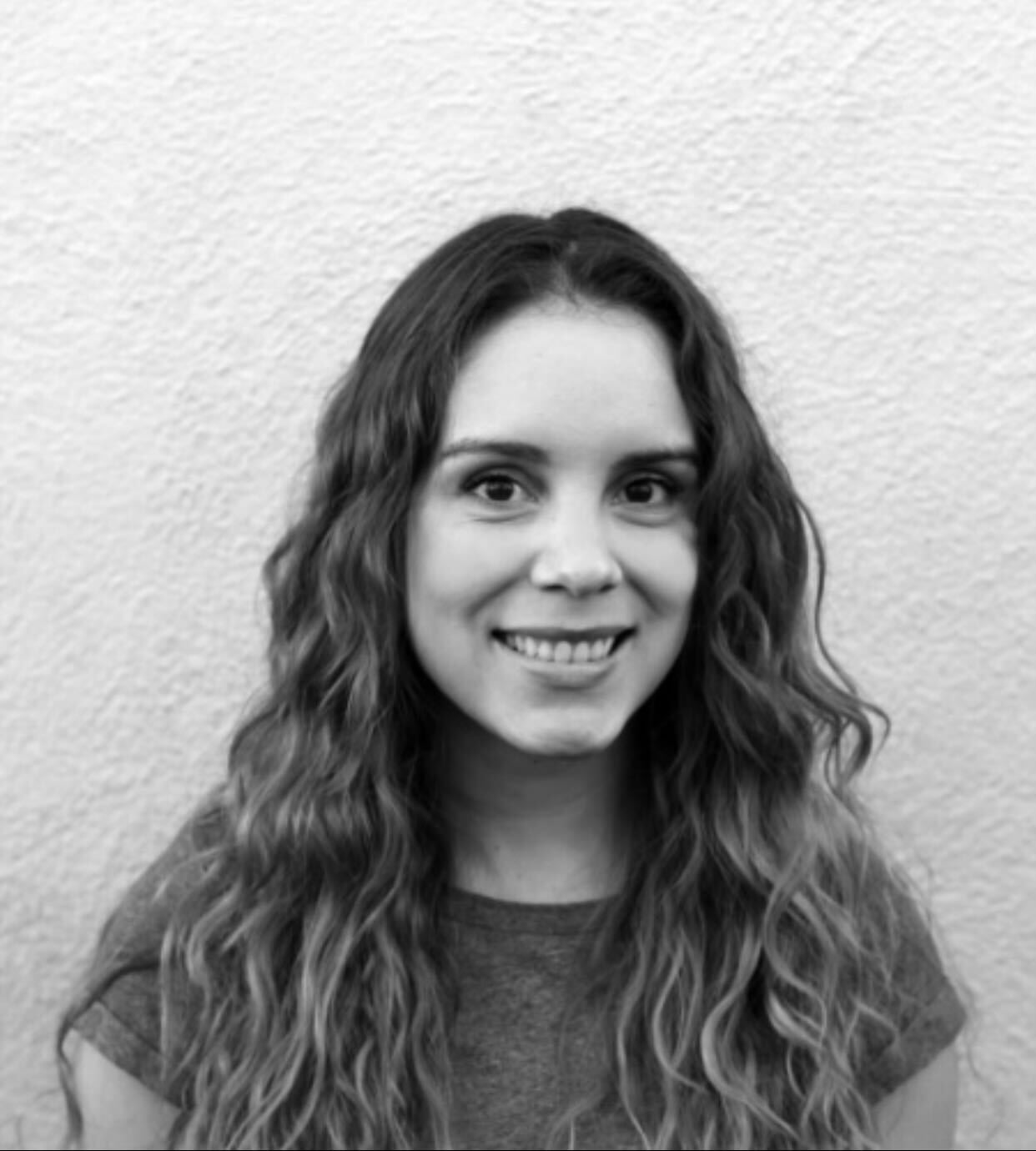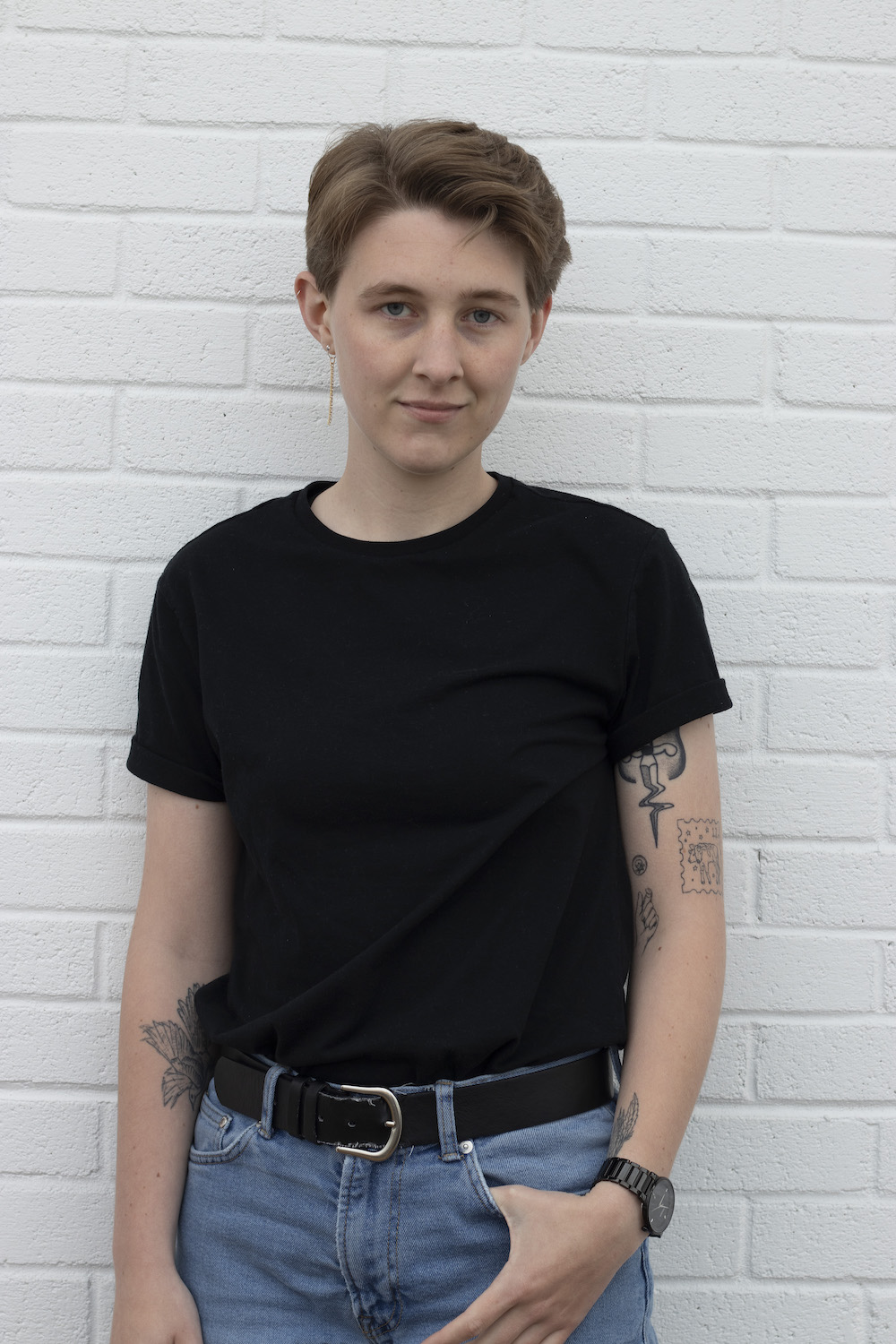Here at Descript’s Creator HQ, we give a lot of general advice, whether it’s recommending the best headphones for editing or crafting the perfect cold open. But we realize that every piece of advice might not resonate with every creator, given that each show’s journey is distinct and unpredictable.
That’s why we're diving deep into individual creators' stories. Because sometimes, there’s more to learn from hearing about the specific contours of a show’s path than by trying to find a generalizable moral from a bunch of them.
In this new series, which we’re calling “How They Made It” (it’s a double entendre, I’ll wait), we’re interviewing individual creators about how they got started, and how their shows and practices—both creative and technical—have evolved since then. We’re focusing on people who started out independent, though many have since partnered with ad networks or even sold their shows to companies like Vox and Spotify.
We have a roster of creators we’re excited to talk to, but we’d love to hear from you about who’s making your favorite indie show, or navigating the industry in unusual or creative ways. If you have thoughts, feel free to get in touch by emailing our managing editor at ashley@descript.com.
We’re kicking off the series with a podcast that has a really relatable origin story for anyone who’s started their own podcast — and an inspiring one for anyone who wants to make it big.

Traci Thomas started her books podcast The Stacks in 2018 with the help of some friends… and a lot of Googling. She describes the show as “like a smart, bookish brunch with the literary pals you’ve been waiting for,” and her listeners seem to agree. The Stacks is a fiercely independent project, run mostly out of Traci’s garage-cum-office, but she’s managed to score interviews with everyone from Ibrahim X Kendi to Angelina Jolie. So we talked to her about monetizing early, keeping a consistent schedule, and thinking about audience first and foremost.
Let’s start at the very beginning: how did you decide to start The Stacks?
In 2017, I read this book called Blood in the Water [by Heather Ann Thompson], about the Attica prison uprising. I really wanted to talk about it with someone, but nobody I knew knew anything about it.
I had been listening to podcasts since 2011. So I was like, let me just [search for] Blood in the Water, Heather Ann Thompson and see what comes up. Two interviews came up. One was like, a law interview, because the book has a lot of legal elements. The other was maybe the New Yorker book podcast or something. It was so pretentious. It just was not me. And I was like, I wish somebody was talking about the books that I'm interested in the way that I want to talk about them.
Fast forward to 2018. I had been posting mini-reviews of the books I read on Instagram, and people would come up and talk to me about them. And I just had this moment of like, I could start a book podcast. There wasn't a lot of Black readers talking about books. There weren't a lot of Millennial takes on new and old books. So I reached out to a friend who used to work at The Ringer and was like, what microphone should I buy. What do I need?
And what did he recommend?
I actually still use the same tech setup now that I did then. When I got an editor, I was like, does it sound okay? You know, I was like, I'll upgrade. And he's like, you don't have to.
I used to record in person, so I have two microphones, both [are] the Audio Technica ATR 2100 USB. I got this red Focusrite Scarlett audio interface with two USB connections. And this micro amp, Ha400 by Behringer Ultra, a compact four channel stereo headphone amplifier. And then I got these hideous oversized headphones, but I love them. Oh, and I got pop filter covers.

I use GarageBand to record and edit. I was doing a lot of Googling of, how to do things in GarageBand.
Then when COVID happened, I had to figure out how I could virtually record. I use Google Meet, and then I use something called Black Hole Aggregate. Nobody does this but me — I'm such a cheap idiot. It’s free, and it allows you to put your audio through, and then I can record the two separate tracks directly into GarageBand. I have to change my audio settings on Google Meet, but then I'm able to record myself locally. I use QuickTime as a backup. I also have my guests record themselves locally using QuickTime or their phone, or GarageBand if they know how. And then I have my local recording on GarageBand, and their virtual recording on GarageBand as a backup.
[Ed: This is the Descript blog so we gotta say it: you can do all of the above in Descript — record remote interviews, edit, publish — and it’s way easier. If you can type, you can edit a podcast in Descript. Plus it’s loaded with AI features that make a podcaster’s life easier. Check it out.]
So once you had your gear, how did you start building an audience?
Before I ever released an episode, before I ever recorded an episode, I went on Instagram. I knew there was this book community there, and I made a book account for The Stacks and started engaging with people who were posting about similar books — commenting, DMing and becoming friends with people. That account had over 2,000 followers before the first episode ever came out. And I at least knew some of those people would listen, just because we'd become friendly and I'd recommended books to them or whatever.
Then, because I was a theater major, I have some friends who are famous people who also read — who were on Insecure, or Crazy Ex Girlfriend. And so they came on the show, but I made them wait. I was like, I need to do at least 10 to 12 episodes before I can have you on, because you're going to bring an audience, and I don’t want to f*** up.
When and how did you start to monetize the show?
I always wanted to try to monetize, so from the very beginning, I used to publicize my Audible affiliate code. It’s like $15 if someone uses it, and I was maybe making $15 a month. Then there was some water bottle that lights up when you don't drink enough water, they gave me an affiliate code. There was some subscription box that has since disappeared.
I was with a podcast network briefly, but it just didn’t work — they were an offshoot of a really, really big company, and my podcast is successful for a books podcast, but it’s just not…I was never gonna do the numbers they wanted to see. Now I’m with Gumball, and they sell my ads.
I also have a Patreon. I set that up in 2018, because someone smarter than me said ‘set up a Patreon.’ But then I had like, seven tiers, and I had all these perks and I couldn't keep up with anything. In 2020 I made a change, and now there's just two tiers. One is called General Admission; it’s $5 a month. And the other tier is Generous Admission, and it's the exact same perks for $10. If you want to pay more because you like me, you can.
I do a lot of stuff. I have a live show here in LA. I'm doing my first ever tour, which, I know people with podcasts my size don't do, but I'm doing it.
I also monetize my social media, because that's got a big following. I'll do paid ads sometimes — I've done some social media campaigns, like I did a big thing in 2020 with BET.
When did you know that you were ready to hire people to help you out?
The podcast network I was on for a little while gave me an editor. And when I left I was like, I still need this, because I had kids at that point. Tawny Newsome, who does Yo! Is This Racist? — we were friends, and she was like, we just left our network, and if you want to leave your network, we can help you. They lent me their producer, Kevin, who helped me ask all the right questions of my next hosting platform, helped me get all the right links, helped me do the transfer.
Christian, my editor, was my first hire. And then a few months later I hired an assistant who does ad copy, episode description, confirmation emails — she does a lot of administrative stuff for me. But I still produce my show.
What advice would you give to podcasters who are just starting out?
Think about your audience. Really think about what you want your show to be saying to the world, and to very specific groups of people. On my show, we talk about politics, we talk about race, we talk about gender. I'm a Black millennial, but I know that I have white women in Nashville who are listening to this show. How much do I have to explain about my experience? When I'm interviewing someone, I'm thinking about, Oh, this person has this kind of energy. How am I going to get them to a place where they're going to have a fun time answering a question about snacks? Because that's coming.
If you're making a show because you think it will be fun, then your expectations should match that. Like, you shouldn't think that you're going to have a conversation with your best girlfriend, and you're going to have such a fun time just talking about shoes, and then be like, why don't I have sponsorship from Manolo Blahnik? If you're going in like, I want to be a money maker, then you need to think about those things much more seriously.
Also, consistency. I was told to be consistent. And I tell everyone else to be consistent, even if that means once a month. But when that day comes up, that episode better be there. And if you need to take a break, take a break, but you need to communicate that very clearly and say, this is the plan.
Get a Patreon from day one. Doesn't hurt. Nobody's using it. It's just there. They only take money from what you make.
And if you're making a show like mine, like an interview show or a weekly show, a regular show, think about what your show is going to be in like 10 weeks. I think people often think, this is my show. I have the first three guests lined up. And that's great, but where are you going to get your guests from in week 10? If you're doing a show about deep sea diving, are you embedded in that community? Do you know a lot of deep sea divers? Do you know boat makers? Do you know fishermen?
And you don't have to buy the f***ing nicest mic ever. I know that the guy in the video from Australia is telling you, you need a $5,000 microphone. You don’t.
[Ed: We agree! Here’s how to choose a mic without bankrupting yourself.]






%20(1).JPG)


























